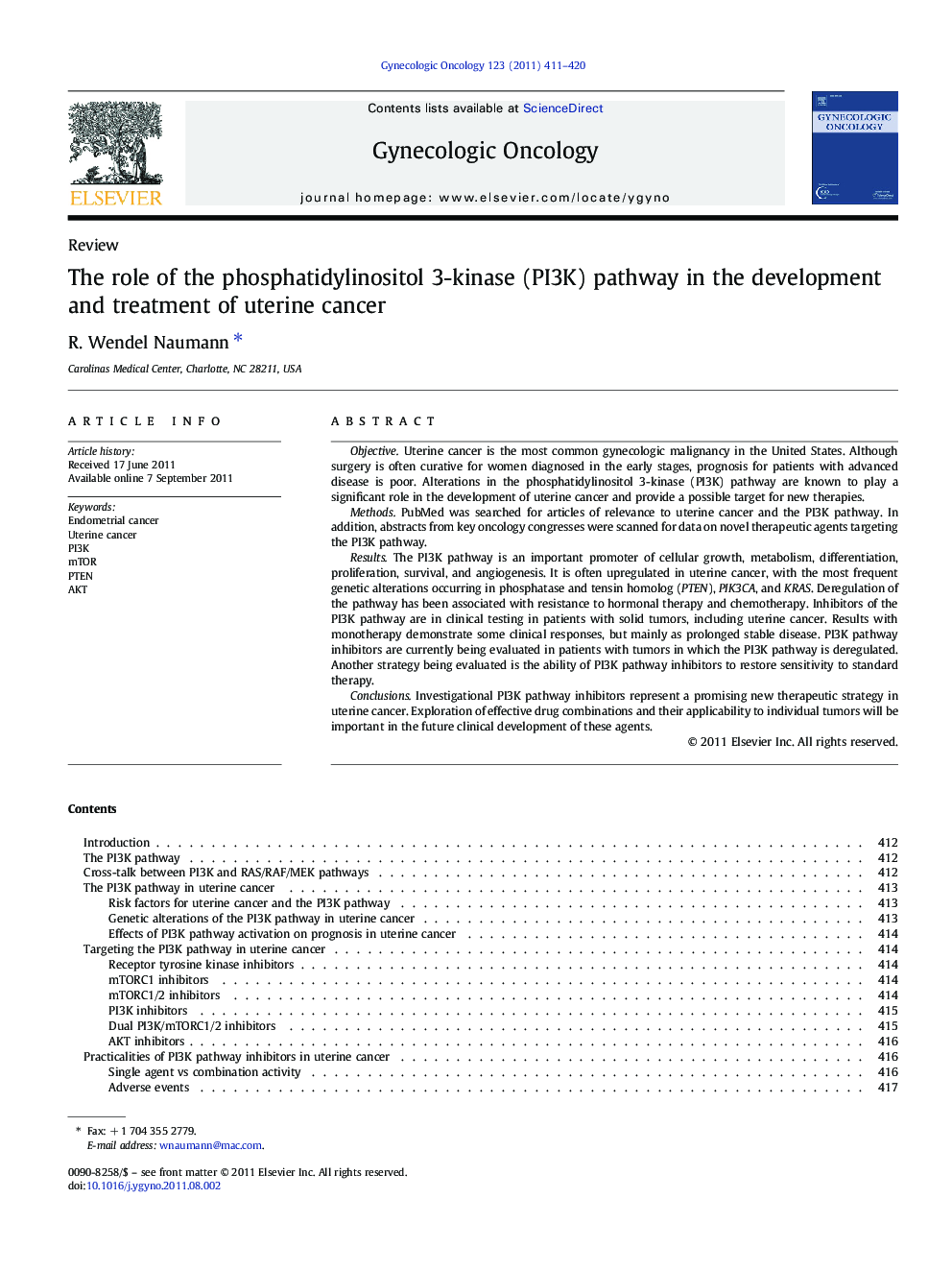| Article ID | Journal | Published Year | Pages | File Type |
|---|---|---|---|---|
| 3945459 | Gynecologic Oncology | 2011 | 10 Pages |
ObjectiveUterine cancer is the most common gynecologic malignancy in the United States. Although surgery is often curative for women diagnosed in the early stages, prognosis for patients with advanced disease is poor. Alterations in the phosphatidylinositol 3-kinase (PI3K) pathway are known to play a significant role in the development of uterine cancer and provide a possible target for new therapies.MethodsPubMed was searched for articles of relevance to uterine cancer and the PI3K pathway. In addition, abstracts from key oncology congresses were scanned for data on novel therapeutic agents targeting the PI3K pathway.ResultsThe PI3K pathway is an important promoter of cellular growth, metabolism, differentiation, proliferation, survival, and angiogenesis. It is often upregulated in uterine cancer, with the most frequent genetic alterations occurring in phosphatase and tensin homolog (PTEN), PIK3CA, and KRAS. Deregulation of the pathway has been associated with resistance to hormonal therapy and chemotherapy. Inhibitors of the PI3K pathway are in clinical testing in patients with solid tumors, including uterine cancer. Results with monotherapy demonstrate some clinical responses, but mainly as prolonged stable disease. PI3K pathway inhibitors are currently being evaluated in patients with tumors in which the PI3K pathway is deregulated. Another strategy being evaluated is the ability of PI3K pathway inhibitors to restore sensitivity to standard therapy.ConclusionsInvestigational PI3K pathway inhibitors represent a promising new therapeutic strategy in uterine cancer. Exploration of effective drug combinations and their applicability to individual tumors will be important in the future clinical development of these agents.
► In uterine cancer, pathway alterations frequently occur in PTEN, PIK3CA, and KRAS. ► The lack of effective salvage chemotherapy options represents a high unmet need. ► This review considers the potential for PI3K pathway inhibitors in uterine cancer.
